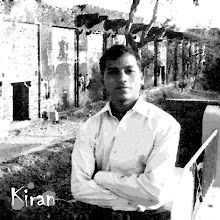
Abraham Lincoln, the 16th president of the United States, guided his country through the most devastating experience in its national history--the CIVIL WAR. He is considered by many historians to have been the greatest American president.
Lincoln was born on Feb. 12, 1809, in a log cabin in Hardin (now Larue) County, Ky. Indians had killed his grandfather, Lincoln wrote, "when he was laboring to open a farm in the forest" in 1786; this tragedy left his father, Thomas Lincoln, "a wandering laboring boy" who "grew up, literally without education." Thomas, nevertheless, became a skilled carpenter and purchased three farms in Kentucky before the Lincolns left the state. Little is known about Lincoln's mother, Nancy Hanks Lincoln. Abraham had an older sister, Sarah, and a younger brother, Thomas, who died in infancy.
In 1816 the Lincolns moved to Indiana, "partly on account of slavery," Abraham recalled, "but chiefly on account of difficulty in land titles in Kentucky." Land ownership was more secure in Indiana because the Land Ordinance of 1785 provided for surveys by the federal government; moreover, the Northwest Ordinance of 1787 forbade slavery in the area. Lincoln's parents belonged to a faction of the Baptist church that disapproved of slavery, and this affiliation may account for Abraham's later statement that he was "naturally anti-slavery" and could not remember when he "did not so think, and feel."
Indiana was a "wild region, with many bears and other wild animals still in the woods." The Lincolns' life near Little Pigeon Creek, in Perry (now Spencer) County, was not easy. Lincoln "was raised to farm work" and recalled life in this "unbroken forest" as a fight "with trees and logs and grubs." "There was absolutely nothing to excite ambition for education," Lincoln later recalled; he attended "some schools, so called," but for less than a year altogether. "Still, somehow," he remembered, "I could read, write, and cipher to the Rule of Three; but that was all."
Lincoln's mother died in 1818, and the following year his father married a Kentucky widow, Sarah Bush Johnston. She "proved a good and kind mother." In later years Lincoln could fondly and poetically recall memories of his "childhood home." In 1828 he was able to make a flatboat trip to New Orleans. His sister died in childbirth the same year.
In 1830 the Lincolns left Indiana for Illinois. Abraham made a second flatboat trip to New Orleans, and in 1831 he left home for New Salem, in Sangamon County near Springfield. The separation may have been made easier by Lincoln's estrangement from his father, of whom he spoke little in his mature life. In New Salem, Lincoln tried various occupations and served briefly in the Black Hawk War (1832). This military interlude was uneventful except for the fact that he was elected captain of his volunteer company, a distinction that gave him "much satisfaction." It opened new avenues for his life.
Source











